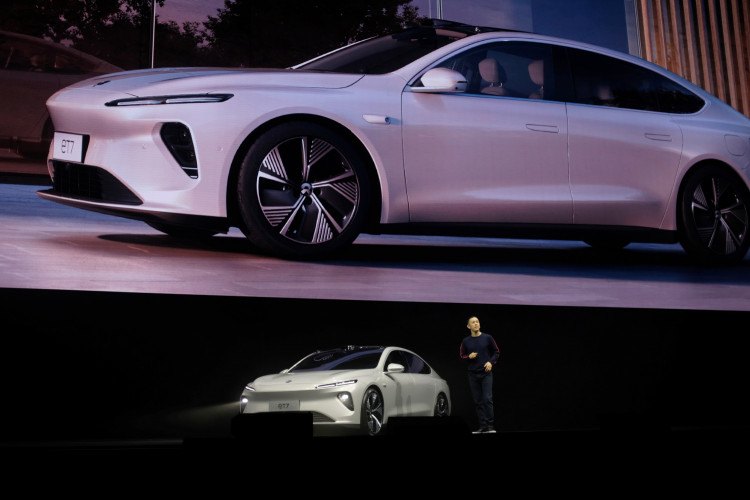Nio, a prominent Chinese electric vehicle (EV) company, has received a strategic investment of about $1.1 billion from Abu Dhabi, one of the largest sovereign wealth funds in the world. The deal was confirmed on Tuesday and will give Abu Dhabi approximately 7% ownership in Nio's issued and outstanding shares after additional new shares and transfer of existing shares.
In the midst of fierce pricing competition in the EV market, this sizable investment undoubtedly serves as a much-needed boost for Nio, potentially strengthening its position in the price war.
Despite previously maintaining that they would not lower their prices, facing the intense price competition in the new energy vehicle industry, Nio has had to backtrack. On June 12, Nio announced price reductions of 30,000 yuan across all models. Furthermore, the company has altered the benefits of its battery swapping, internet connectivity, and vehicle warranty packages.
Nio's CEO, Li Bin, explained that the current time was the most appropriate for this change, possibly hinting at their less than stellar financial report for the first quarter of 2023.
In the report, Nio recorded a total revenue of 10.68 billion yuan in Q1, representing a 7.7% year-on-year growth, but a decrease of 33.5% compared to the previous quarter. The Q1 gross profit stood at 160 million yuan, marking a year-on-year decline of 88.8% and a sequential decline of 73.9%. The gross profit margin and vehicle gross margin were 1.5% and 5.1%, respectively, both the lowest in nearly three years.
Continuing to operate at a loss, Nio's Q1 net loss amounted to 4.74 billion yuan, decreasing 18.1% from the previous quarter. Since its listing on the New York Stock Exchange, Nio has accumulated a loss of more than 70 billion yuan.
Cash flow has also been strained. As of the end of Q1, Nio's cash and cash equivalents, restricted funds, short-term investments, and long-term time deposits amounted to only 37.8 billion yuan, significantly lower than at the end of last year.
Ultimately, the poor financial performance is attributed to low sales. Amid the price war incited by Tesla, Nio's Q1 deliveries stood at 31,000 units, marking a quarter-on-quarter decline of 22.5%.
Furthermore, the report indicated that Nio's Q2 deliveries would continue to fall, projected between 23,000 to 25,000 units, further lowering Q2 revenue forecasts to between 8.742 billion yuan and 9.37 billion yuan, a year-on-year decrease of 9% to 15%.
Considering Nio's deliveries in April and May were 6,700 and 6,100 units respectively, if Q2 sales match projections, June deliveries will remain around 10,000 units.
Li Bin recently made a public commitment to a plan of exceeding an average monthly sales volume of 20,000 units in the second half of the year. Based on current performance, this leap from 10,000 to 20,000 units may only be achievable through price reductions.
An earlier research report by Jinduan suggested that if Nio's monthly sales could reach 22,000 units while keeping 2022 expenses unchanged, the expense rate would decrease by 24 percentage points and the gross margin would increase by 6 percentage points.
It's noteworthy to mention that this is not the first time Nio has lowered prices. On February 1 of this year, Nio initiated an unprecedented price reduction event, with discounts exceeding 100,000 yuan on stock of their first-generation models.
As a luxury brand, Nio has always emphasized price protection. In a 2021 interview with CCTV Finance, Li Bin stated that while Tesla's price reduction was not surprising, Nio would never reduce its prices, claiming it as a principle of the company.
In addition to price reductions, Nio must also improve the delivery speed of new vehicles. Previous reports by Business Times pointed out that Nio consistently brings new models to the market ahead of schedule, but actual deliveries are often delayed, which undeniably has a negative impact on the company.
Currently, Nio has the most available models among all new energy vehicle manufacturers, successfully converting many potential consumers into customers through early orders. However, these customers' patience has been tested by delayed deliveries.
Improving delivery efficiency is one of Nio's most significant challenges. If improvements can be made in this regard, Nio's performance is expected to see a significant improvement.






